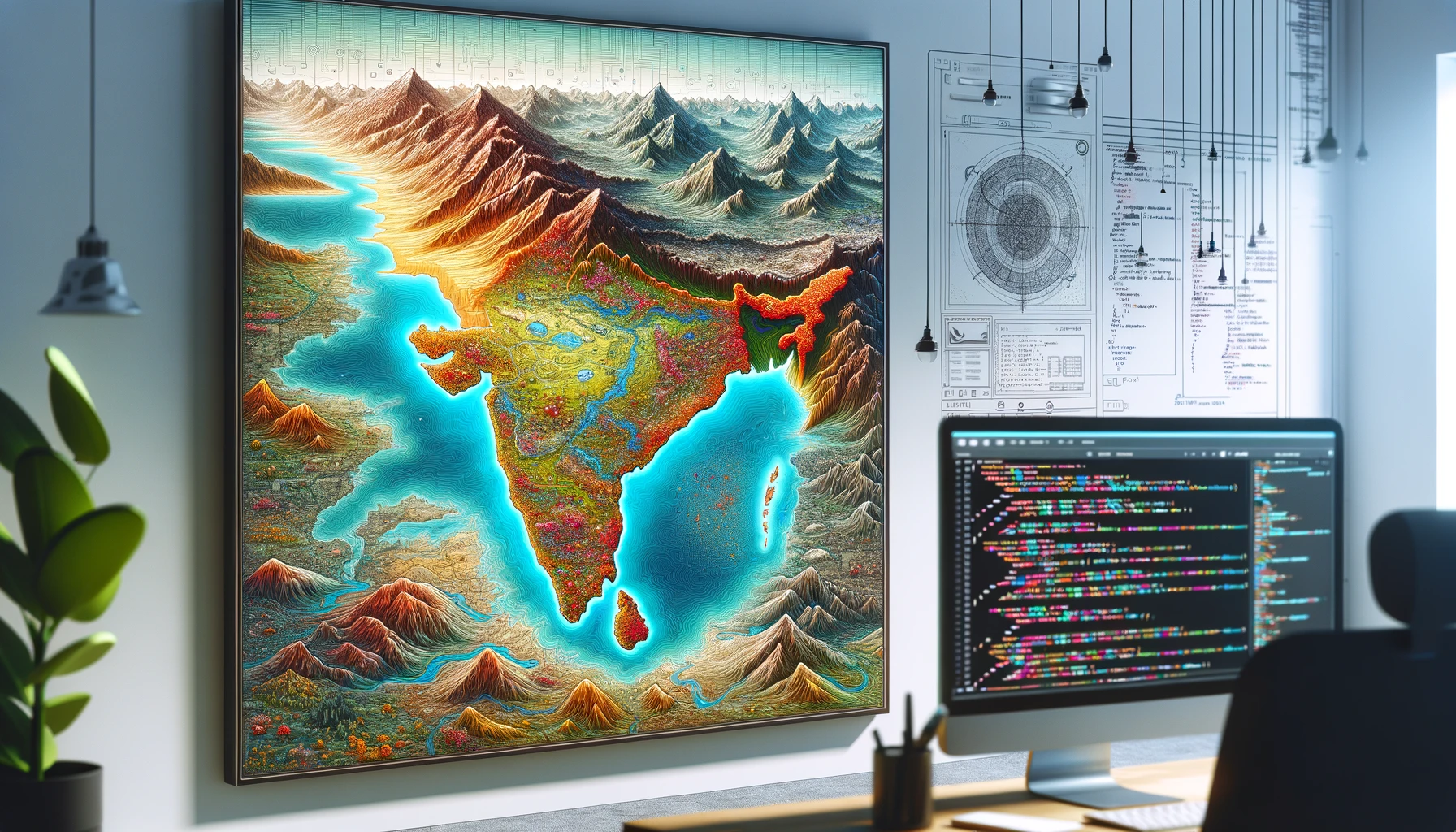Implementing GeoJSON on Google Maps within an Angular application involves a few steps. Firstly, you need to have Google Maps integrated into your Angular application. You can do this by using the @angular/google-maps module which provides a set of Angular components for Google Maps. After setting up Google Maps, you can then add GeoJSON data to your map.
Here’s a basic guide to get you started:
Step 1: Setup Angular Project
If you haven’t already set up an Angular project, you can create one by running:
ng new your-project-name cd your-project-name
Step 2: Install @angular/google-maps
Install the Google Maps module for Angular:
npm install @angular/google-maps
Step 3: Import GoogleMapsModule
In your app.module.ts, import GoogleMapsModule:
import { GoogleMapsModule } from '@angular/google-maps';
@NgModule({
declarations: [
// other components
],
imports: [
// other modules
GoogleMapsModule
],
providers: [],
bootstrap: [AppComponent]
})
export class AppModule { }
Step 4: API Key Configuration
You need a Google Maps API key to use Google Maps services. Once you have your API key, you can add it to your project’s environment files (src/environments/environment.ts and src/environments/environment.prod.ts):
export const environment = {
// other environment settings
googleMapsApiKey: 'YOUR_API_KEY'
};
In your app.module.ts or the module where you’re using Google Maps, import environment and configure the API key:
import { environment } from '../environments/environment';
@NgModule({
// Other module properties
providers: [
{ provide: GOOGLE_MAPS_API_KEY, useValue: environment.googleMapsApiKey }
],
})
Step 5: Add the Map to Your Component
In your component’s HTML, you can add the map like this:
<google-map
[height]="'400px'"
[width]="'100%'"
[center]="{lat: 40.730610, lng: -73.935242}"
[zoom]="12">
</google-map>
And in your component’s TypeScript file, ensure you have the center and zoom properties defined:
@Component({
selector: 'app-my-map',
templateUrl: './my-map.component.html',
styleUrls: ['./my-map.component.css']
})
export class MyMapComponent {
center: google.maps.LatLngLiteral = {lat: 40.730610, lng: -73.935242};
zoom = 12;
// Other component properties and methods
}
Step 6: Adding GeoJSON
To add GeoJSON data to your map, you can use the mapReady output event of the google-map component to get a reference to the google.maps.Map object and then use the data layer to add GeoJSON:
<google-map [height]="'400px'" [width]="'100%'" [center]="center" [zoom]="zoom" (mapReady)="onMapReady($event)"> </google-map>
And in your component’s TypeScript:
onMapReady(map: google.maps.Map) {
map.data.loadGeoJson('path/to/your/geojson/file.json');
}
Or you can add GeoJSON directly:
onMapReady(map: google.maps.Map) {
const geoJson = {
"type": "FeatureCollection",
"features": [
{
"type": "Feature",
"geometry": {
"type": "Point",
"coordinates": [-73.935242, 40.730610]
},
"properties": {
"name": "Location Name"
}
}
// Add more features here
]
};
map.data.addGeoJson(geoJson);
}
Make sure to replace 'path/to/your/geojson/file.json' with the actual path to your GeoJSON file or define your GeoJSON data directly in the component as shown.
This is a basic implementation to get you started with integrating GeoJSON data into Google Maps within an Angular application. Depending on your requirements, you may want to explore additional functionalities such as styling GeoJSON features, responding to user interactions, and dynamically modifying GeoJSON data.

I want to know if I use this library angular/google-maps if I can do all things that tha api of google maps can do.
I don’t know which option is better or if I use the module for angular of google maps maybe I will lose some options.
I don’t know which one to decide, I have installed the angular/google-maps @16.3.1 version but I don’t know if it will have the same potential as using directly integrating the Google Maps API into my Angular project.
I tried to install the api of google maps angular/google-maps in my angular project but I don’t know which is the best option.